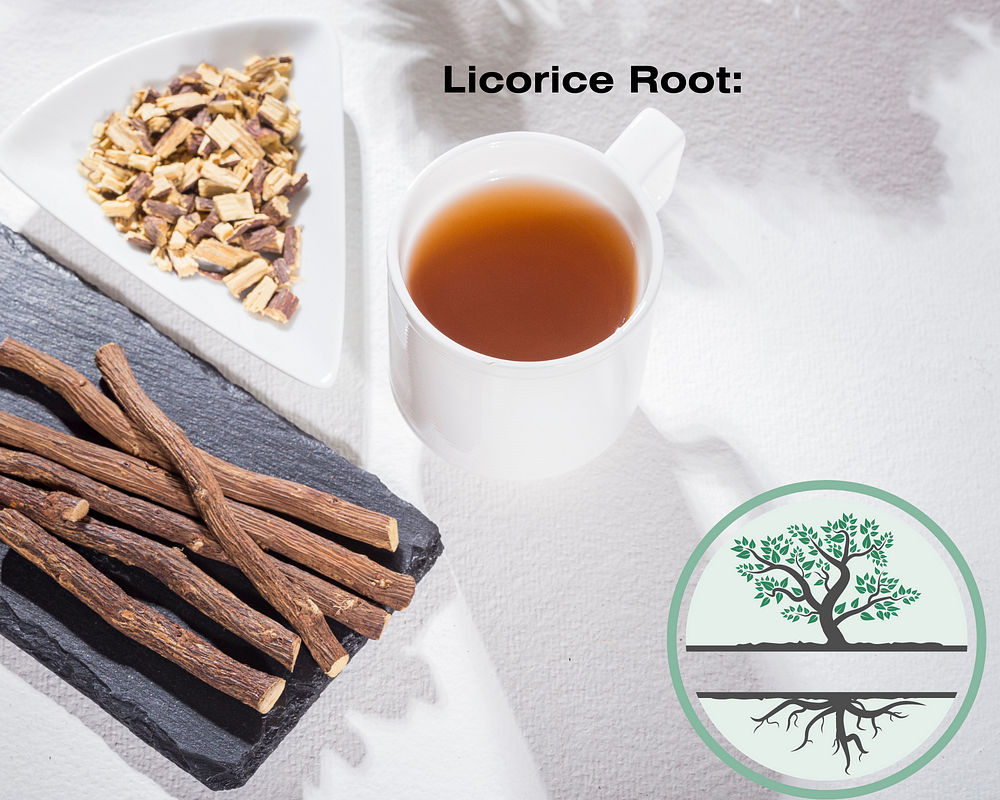Licorice Root’s Secrets: Benefits, Risks, and Juicing Guide
Unveiling Licorice Root’s Secrets: Benefits, Risks, and Juicing Guide

Licorice root, often underestimated, stands as a botanical marvel in the realm of natural remedies and holistic wellness. Its unassuming appearance belies a treasure trove of potential advantages, ranging from alleviating digestive discomfort to boosting respiratory health. However, like any potent natural ingredient, unlocking licorice root’s benefits requires a nuanced understanding and careful application.
Exploring Licorice Root’s Benefits: In this exploration, we delve into the multifaceted benefits of licorice root, the precautions necessary for its responsible use, and an enticing aspect that merges health benefits with culinary delight. Whether you’re a wellness enthusiast, a culinary adventurer, or simply intrigued by ancient herbal wisdom, this journey into the world of licorice root promises both enlightening insights and delightful sips.
The Ancient Roots of Licorice: Licorice root’s historical use dates back to ancient Egypt, where pharaohs indulged in a sweet beverage derived from the root for its medicinal properties. Across diverse cultures, including traditional Chinese, Middle Eastern, and Greek traditions, licorice root found its place in remedies aimed at calming upset stomachs, reducing inflammation, and treating respiratory ailments.

Contemporary Applications: Today, licorice root is sought after for its potential to alleviate various ailments such as heartburn, acid reflux, hot flashes, coughs, and infections. It often appears in the form of supplements, teas, or topical gels, each catering to different health needs from internal wellness to skincare.
Understanding Licorice’s Plant Compounds: Among licorice root’s numerous plant components, glycyrrhizin emerges as the primary active ingredient responsible for its sweet flavor and array of medicinal properties, including antioxidant, anti-inflammatory, and antibacterial effects.
Navigating Potential Risks and Precautions: While the FDA considers licorice root generally safe for use in foods, caution is warranted, especially concerning glycyrrhizin content. Prolonged or excessive use of licorice root products may lead to adverse effects such as elevated cortisol levels, potassium depletion, and high blood pressure.
Clarifying Crucial Precautions: Individuals with specific health conditions such as hypertension, heart disease, kidney issues, diabetes, or low potassium levels should exercise caution or avoid licorice consumption altogether. It’s essential to consult healthcare professionals before incorporating licorice into one’s diet, especially alongside medications.
Recipes for Health and Flavor: To complement this journey into licorice root’s realm, we present three delectable recipes that fuse healthful benefits with flavorful indulgence:

- Classic Licorice Infusion: A simple yet refreshing concoction to soothe the senses and invigorate the body.
- Licorice Ginger Tea: Experience the harmonious marriage of licorice and ginger, renowned for their digestive benefits and warming properties.
- Licorice Mint Cooler: Beat the summer heat with this cooling and revitalizing beverage, blending the invigorating essence of mint with licorice’s subtle sweetness.

As you embark on your licorice root exploration, remember that moderation is key, Licorice root has various benefits, including anti-inflammatory properties, digestive health support, respiratory support, hormonal balance, and skin health benefits. However, it should be used cautiously by individuals with high blood pressure, avoided by pregnant and breastfeeding women, and used carefully by those taking medications due to potential interactions. and informed choices ensure optimal health outcomes. Whether sipping on a comforting brew or indulging in a culinary delight, may licorice root enrich your wellness journey with its ancient wisdom and modern allure.
Disclaimer:
This blog post is intended for general informational purposes and should not be construed as medical advice. It is not intended to diagnose, treat, cure, or prevent any disease. Before making any changes to your diet, lifestyle, or health regimen, consult with a qualified healthcare professional, especially if you have underlying health conditions, are pregnant or breastfeeding, or are currently taking medications. Always seek personalized medical advice tailored to your specific needs and circumstances.
Experience the power of SuperRed and SuperGreen LiveGood supplements — your key to vitality and well-being! Plus, embark on a free tour of LiveGood for a deeper understanding of holistic health.”
Discover the best sources of LiveGood supplements — natural, effective, and affordable!
Disclosure: As a member of LiveGood Natural Supplements, I may earn a commission from qualifying purchases made through affiliate links included in my blog posts. These affiliate links allow me to earn a small commission at no additional cost to you, which helps support the maintenance and growth of this website. Rest assured that I only recommend products that I genuinely believe in and have personally used or researched. Thank you for your support!"
Reference:
https://www.ncbi.nlm.nih.gov/pmc/articles/PMC3498851/
https://www.healthline.com/nutrition/licorice-root
Licorice root is an ancient herbal remedy that's commonly found in teas, supplements, and candies - but you may have…www.healthline.com
This fact sheet provides basic information about licorice root-common names, usefulness and safety, and resources for…www.nccih.nih.gov
Whether you're a licorice aficionado or a curious newcomer, something is intriguing to discover about this remarkable…www.ancientherbswisdom.com

Comments
Post a Comment